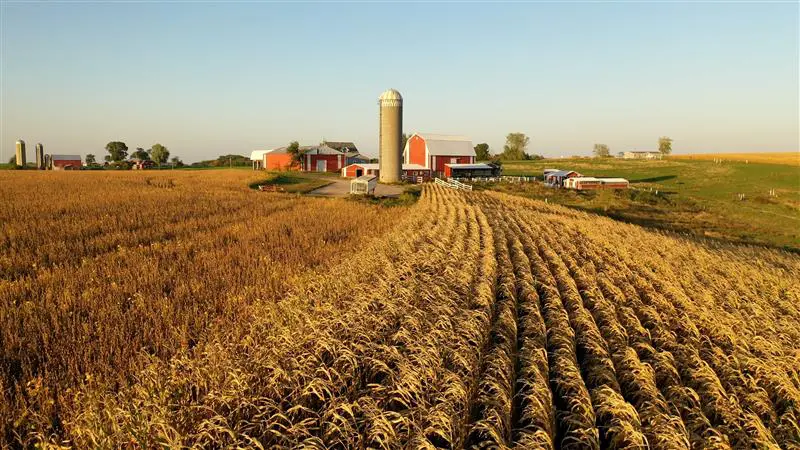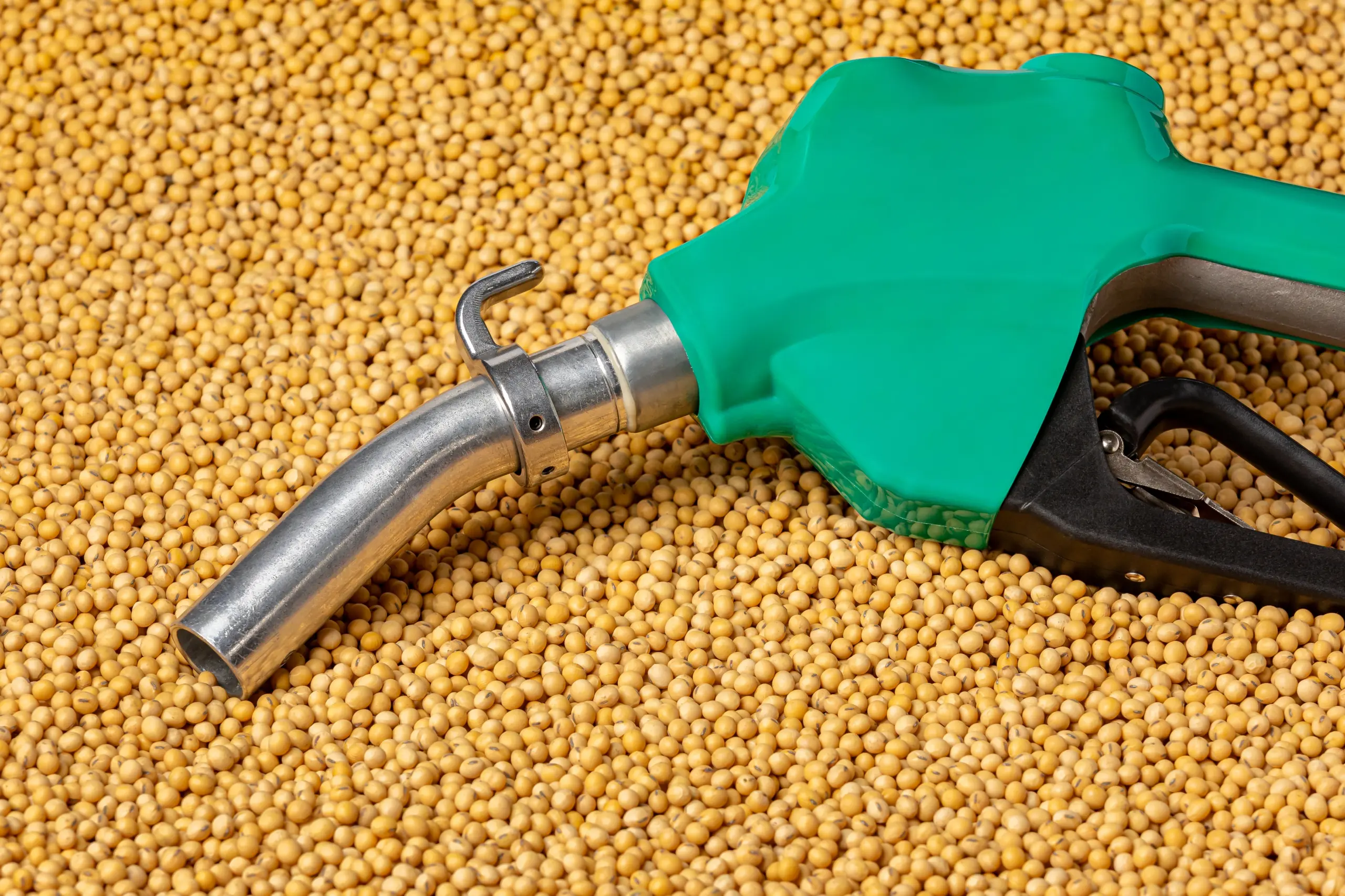October 2024
As the 2024 election approaches, members of Congress have departed Washington for the final stretch of their campaigns. While Capitol Hill has been quiet throughout October, NFU’s government relations team is following up on the Fly-In, building on the good work Farmers Union members did in September.
NFU is also gearing up for the upcoming “lame duck” session of Congress – the period after the election and before the 119th Congress takes office in January. NFU’s top priority for the remainder of 2024 is getting the farm bill done, which hangs in the balance.
FARMERS AND RANCHERS IN ACTION (AND USDA COMPETITION ANNOUNCEMENTS)
In early October, Farmers Union members from across the country were invited to the “Farmers and Ranchers in Action” event at the White House, to meet with U.S. Secretary of Agriculture Tom Vilsack, Deputy Secretary Xochitl Torres Small, Farm Service Agency (FSA) Administrator Zach Ducheneaux, and other senior officials from the Biden-Harris Administration.
The event provided a forum for producers to hear directly from the U.S. Department of Agriculture (USDA) about the programs and resources available to them and to provide direct feedback on how the administration’s investments have impacted their operation and what is needed to continue building a fair agriculture marketplace. Farmers Union members also participated in a special roundtable discussion with Deputy Secretary Torres Small to further discuss issues facing beginning and young farmers – a follow-up from a similar meeting that took place during NFU’s Fall Legislative Fly-in.
In conjunction with the event, Secretary Vilsack announced further actions USDA is taking to promote fair and competitive markets for farmers and ranchers and reduce food prices for consumers. These include:
- Transparency in seed markets: A multipart framework, leveraging existing funding and research capacity, to increase transparency and improve researcher access to seed germplasm (the starting materials plant breeders need to create diverse, resilient, and competitive seed varieties). This puts into effect many key recommendations from USDA’s 2023 report on seed innovation and competition.
- Meatpacking market conditions: The publication of an interim report, “Competition and Fair Practices in Meat Merchandising,” further examining the increasing trend of market concentration among meatpackers, distributors, and retailers. The report also highlights the experiences and concerns of farmers and small, mid-sized, and independent processors who have been negatively impacted by consolidation.
- Cattle market price discovery: An Advanced Notice of Proposed Rulemaking under the Packers and Stockyards Act to better regulate alternative marketing arrangements in fed cattle markets, aiming to enhance price discovery, increase transparency, and promote fairness in cattle markets.
NFU supports the announcement and will work with USDA to ensure these actions are implemented with input from Farmers Union members. NFU’s Fairness for Farmers campaign brought the devastating impact of monopolies on family agriculture into the national spotlight and these actions reflect the administration’s commitment to ensuring family farmers and ranchers have fair, competitive, and resilient markets.
NFU ENDORSES BILL TO IMPROVE LAND ACCESS FOR BEGINNING FARMERS
In early October, NFU endorsed the Farm Ownership Improvement Act, which seeks to help beginning and young farmers better access the funding needed to purchase new land. The bill (S.5231), being led by Sens. Peter Welch (D-VT), John Hoeven (R-ND), and Tina Smith (D-MN), establishes a preapproval or pre-qualification process for loans secured through FSA.
NFU worked closely with the National Young Farmers Coalition and Sens. Welch and Hoeven to develop this legislation. The bill directs FSA to create a pilot program to establish a pre-approval or pre-qualification process for direct farm ownership loans. Access to quality and affordable land is one of the greatest challenges facing beginning and young farmers and ranchers, as most farmland is not sold on the open market and is often sold to well-capitalized, well-established buyers.
Unlike in the private market for mortgages, where prospective buyers can receive pre-approval or pre-qualification to demonstrate their creditworthiness, no such option currently exists when seeking access to credit through FSA. This puts farmers attempting to purchase land or a home through FSA at a significant competitive disadvantage, especially given the lengthy loan approval times. This bill seeks to help level the playing field for farmers seeking land, particularly beginning and young farmers.
NFU’s priorities for the farm bill include supporting the next generation of farmers, who face significant challenges and barriers to entry. In addition to the Farm Ownership Improvement Act, NFU has also endorsed the Farm Transitions Act, which directs USDA to better study and make policy recommendations on the issues impacting the transition of agricultural operations across generations. NFU also supports the Crop Insurance for Future Farmers Act, which seeks to improve the affordability of crop insurance for beginning and veteran producers.
BIOFUELS: DOMESTIC FEEDSTOCKS FOR 45Z
For the last several years, NFU has actively supported efforts to ensure optimal eligibility for U.S. farmers to utilize renewable and sustainable aviation fuel (SAF) tax credits.
The 2022 Inflation Reduction Act created new tax credits to incentivize the production of low-carbon fuels. Two of these credits, 40B and 45Z – the SAF tax credit and Clean Fuel Production Credit, respectively – have been in the works for much of the last year. The U.S. Department of Treasury recently finalized the 40B eligibility requirements, which required the bundling of several climate-smart agriculture practices for producers to be eligible.
As the treasury department crafts eligibility guidance for 45Z, NFU has expressed concern with the prospect foreign feedstock sources, such as used cooking oil – imports of which tripled in 2023 from the previous year, with over 50% coming from China – could be used in biofuel production and be eligible to receive 45Z tax credits. If eligible, imported feedstocks could receive the same taxpayer-funded benefits as homegrown soy or corn oil in renewable diesel and undermine the congressional intent behind the credits.
Over the summer, NFU joined a group of agricultural stakeholders urging the treasury department to protect U.S. biofuel producers and ensure the credits are eligible only for renewable fuels sourced from domestic feedstocks. Such restrictions will ensure U.S. farmers are the beneficiaries of these incentives.
NFU has also been working with a bipartisan group of lawmakers in Congress to codify domestic feedstock requirements for 45Z into law. The Farmer First Fuel Incentives Act, led by Sens. Roger Marshall (R-KS) and Sherrod Brown (D-OH) and Reps. Tracey Mann (R-KS) and Marcy Kaptur (D-OH), expressly restricts 45Z to domestically sourced feedstocks. The bill also extends the life of the credit through 2034, making it a full 10-year credit, as does the Expanding Clean Fuel Production Act, led by Reps. Brad Schneider (D-IL), Dan Kildee (D-MI), and Julia Brownley (D-CA).
MAKE YOUR PLAN TO VOTE!
Election day is Tuesday, November 5. Millions of voters have already cast their ballots and millions more will head to the polls to make their voices heard as we elect our next president, U.S. senators, and members of the U.S. House of Representatives. Voters will also make their choices in state and local elections, which can have a significant impact on farmers, ranchers, and rural communities.
A common cliché about elections is “every vote counts.” This year, it seems there is no better way to describe the stakes in this election. Farmers Union members know well the importance of voting – it is not just your right, but also your responsibility. Vote.gov has a list of resources to help Americans register to vote and find their polling location, as well as information on early, in-person, and mail and absentee voting.





